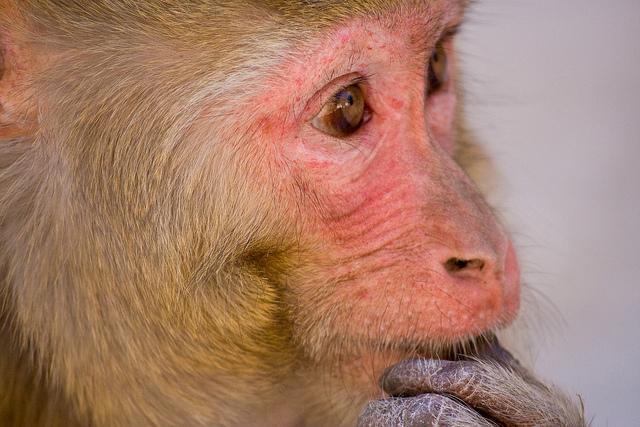Three inactivated-virus, gene- and vector-based vaccines protected rhesus monkeys from a Zika challenge, a study yesterday in Science noted. The promising outcomes set the stage for trials involving human subjects.
"The explosion of the Zika virus epidemic in Brazil and in the Americas led the WHO [World Health Organization] to declare this to be a public health emergency of international concern on Feb 1 of this year," Dan H. Barouch, MD, PhD, professor of medicine at Harvard Medical School and senior author, told CIDRAP News.
"The development of a safe and effective vaccine is therefore an important priority."
All 3 vaccines test well
Army researchers at Walter Reed Army Institute of Research (WRAIR), in collaboration with the Beth Israel Deaconess Medical Center and Harvard Medical School, showed that a Zika inactivated purified virus (ZIPV) provided a robust immune response, with all eight monkeys showing Zika-specific neutralizing antibodies 2 weeks after the first dose (a second dose was given at week 4).
The monkeys were then challenged with Zika strains from Brazil and Puerto Rico. The control subjects showed viremia at day 3 post-infection, while the vaccinated monkeys showed total protection against Zika virus. No Zika was found in blood, urine, cerebral spinal fluids, colorectal secretions, or vaginal secretions.
Next, the researchers tested an "adoptive transfer" vaccine. Using immunoglobulin G (IgG) from the eight monkeys that had been vaccinated, the researchers injected Zika-naive rhesus monkeys with the vaccine-elicited, Zika-specific IgG, and saw an immune response and protection against Zika virus, even in animals that had relatively low titers of the virus in their blood.
Finall,y to evaluate gene-based and vector-based vaccines, the researchers injected 12 monkeys with a plasmid DNA vaccine, or a adenovirus serotype 52 (RhAd52) vector-based vaccine. The DNA vaccine was given in two doses (the second 4 weeks after the first) and the vector-based vaccine was given just once.
The monkeys were then challenged with a strain of Brazilian Zika virus at 8 weeks post-vaccination, and both methods prevented detectable Zika virus. The vector-based vaccine produced a higher antibody count.
Raised optimism
Barouch said the findings "raise optimism" for developing a successful Zika vaccine. "Clinical trials should proceed as quickly as possible," he said, adding that human trials with the purified inactivated virus vaccine are planned for this fall.
The study comes 1 week after local transmission of Zika virus began in Miami's Wynwood neighborhood. Zika usually causes mild illness in patients who are symptomatic, but infection with Zika during pregnancy can lead to devastating outcomes, including microcephaly and fetal demise. Because 80% of Zika infections will likely go unnoticed, a vaccine has been made a top priority since the virus erupted in the Americas last year.
As of yesterday, the Centers for Disease Control and Prevention reported 1,825 Zika cases in the continental United States, including 479 involving pregnant women.
See also
Aug 3 Science study





















